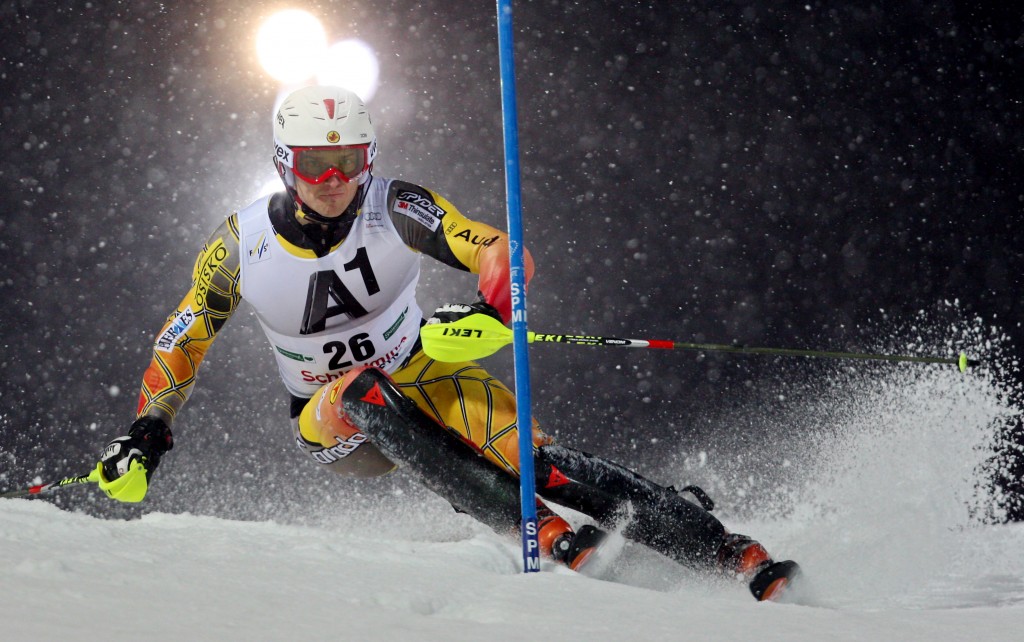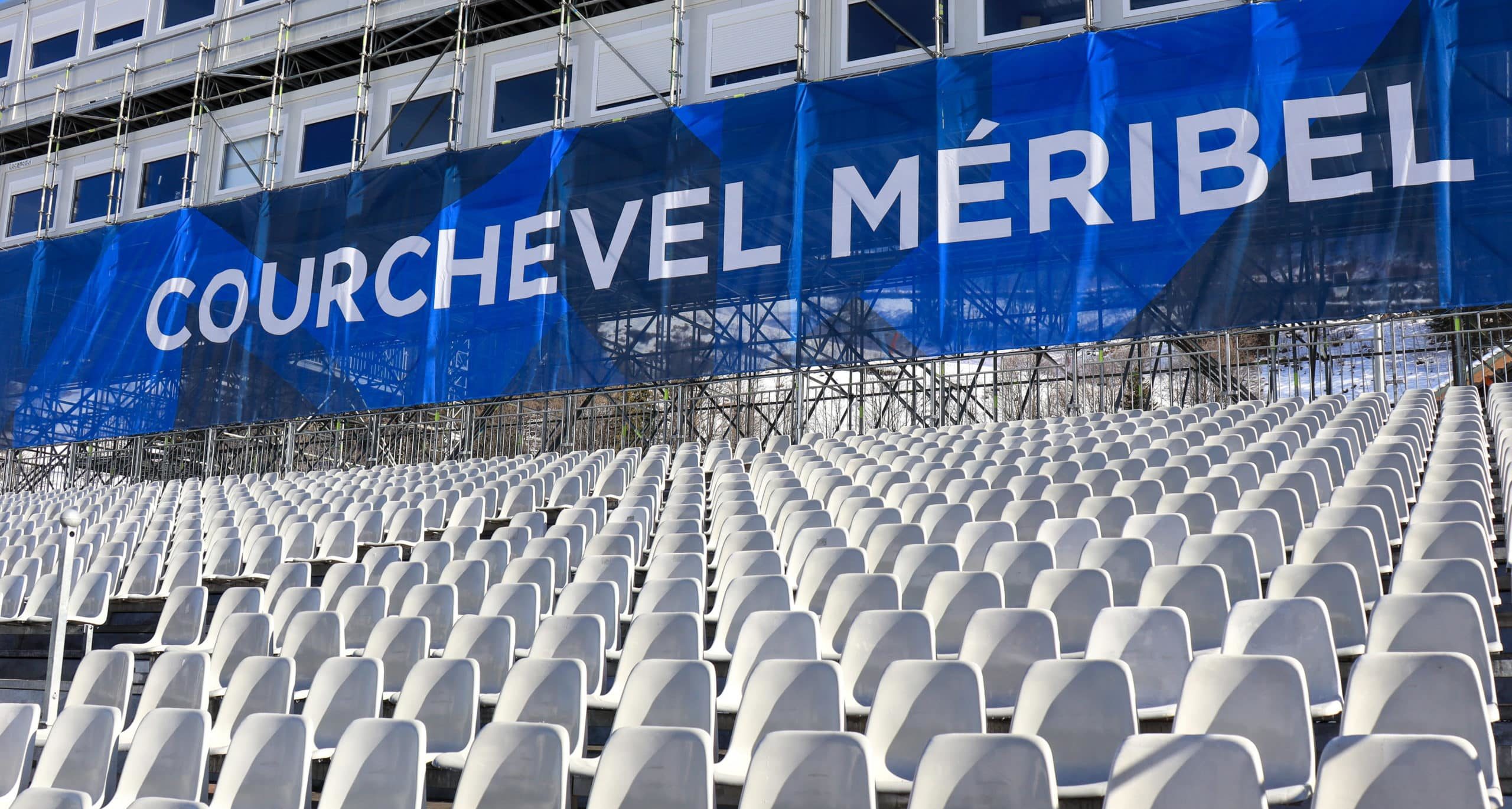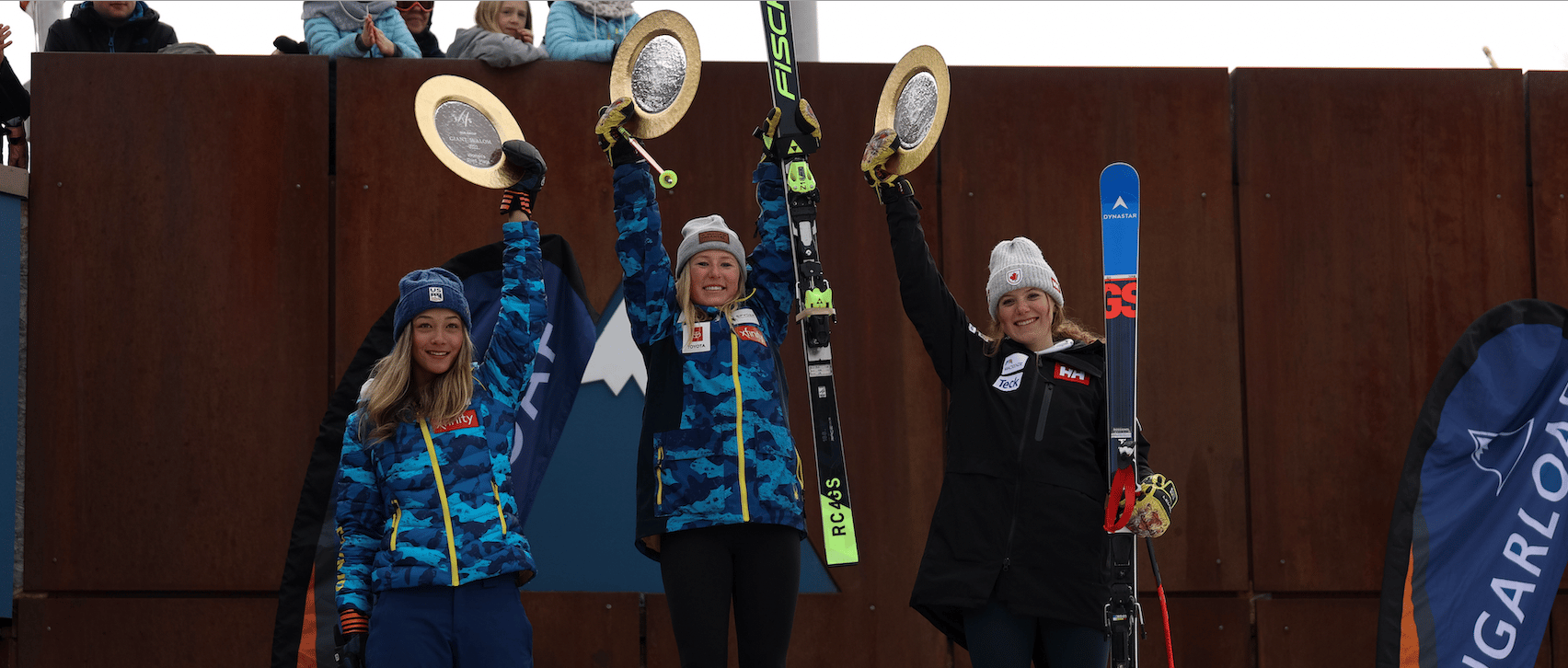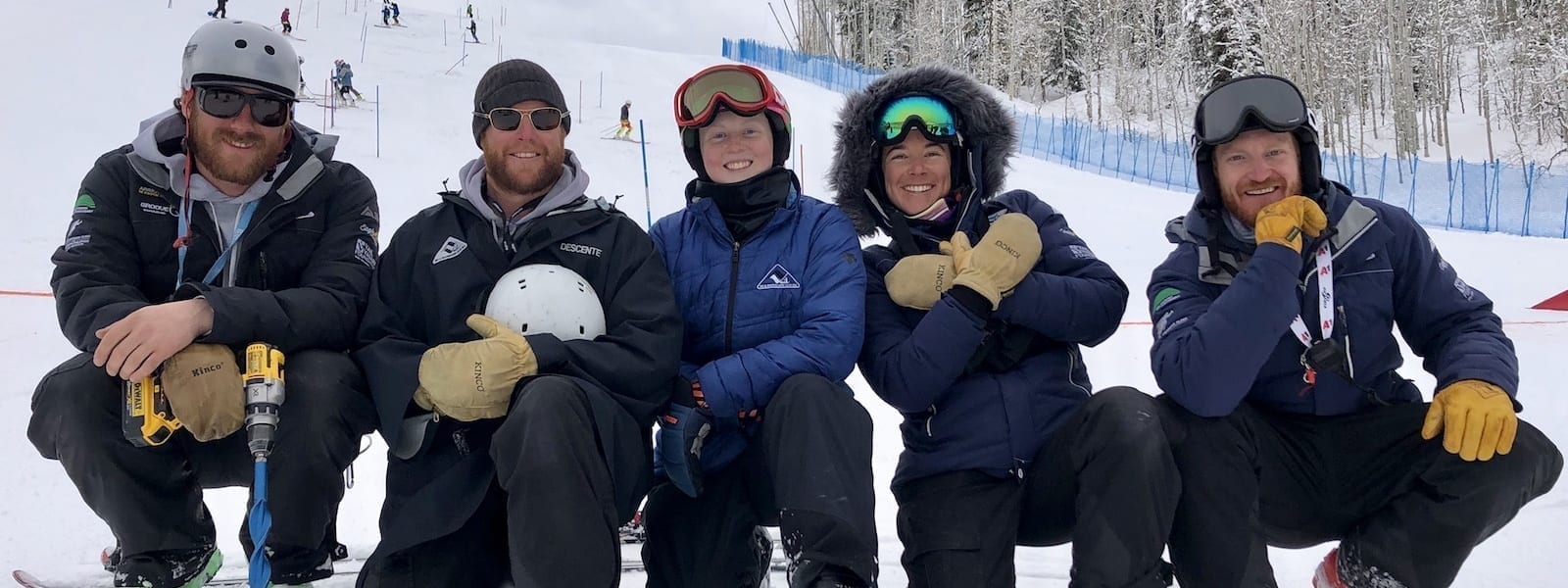Canadian slalom specialist Spence retires
CALGARY, Alberta — Slalom skier Brad Spence, who is known as much for his compassion and charity work off the hill as his incredible courage and perseverance on it, has retired from competition following career-ending leg surgery.
The 30-year-old from Calgary, who battled back from a devastating leg injury early in his career to fulfill his dream of becoming an Olympian, went under the knife earlier this summer after representing Canada for a second time at the Winter Games in Sochi, Russia.
Although his 12-year career on the World Cup circuit was a testament to his ability to overcome adversity, Spence was unique in the athlete community for the way in which he was able to share his success with others. Now he’s hoping to establish a foundation to inspire other athletes to continue to “pay it forward.”
“The results are one thing but what makes me proudest is the impact I’ve had on other people through my experiences,” said the two-time Olympian, who was famously sponsored by then eight-year-old Gage Ferguson in 2012 and wore a ski helmet designed by Calgary bone cancer patient Gillian O’Blenes in Sochi earlier this year.
“Getting the whole experience for Gage was something I will never forget and I was able to learn so much through meeting Gillian. The goal is to pay that forward to other athletes and help them appreciate that there’s so much more to being No. 1 than being selfish.”
Spence was part of a golden generation of Canadian World Cup skiers that includes Olympic bronze medallist Jan Hudec, downhill world champions Erik Guay and John Kucera, as well as speed ace Manuel Osborne-Paradis. But in 2005, just three years after making his World Cup debut, Spence crashed in Bormio, Italy, breaking his tibia and fibula, as well as tearing the ACL and MCL in his right knee. Complications after the crash meant Spence could have lost his leg. Instead, he used his childhood dream of representing Canada at the Olympics to fuel his against-the-odds return to competition, a feat that took him three years to complete.
His career highlight came in 2010 when a clutch 12th-place World Cup finish under pressure in Kitzbuehel, Austria, sealed his place on the Canadian Olympic team for the Vancouver Olympic Winter Games.
“The proudest day for me was definitely putting the Team Canada gear on for the Olympics in Vancouver. That’s something I had dreamed of since I was four years old,” Spence said. “Getting my second top-12 result to qualify in January 2010 – that was the absolute pinnacle. Being able to perform under pressure and realizing what I’d been able to overcome to get there was an amazing feeling.
“I’d had numerous doctors say I shouldn’t return to sport. I was always going to try my best – but it was a humbling experience. I just wanted to be able to go out on my own terms.”
Spence’s longtime friend and teammate Trevor White, who retired from the national ski team last year, had a front row seat as his buddy battled back from injury to reestablished himself as a world class ski racer.
“Oddly enough, not only did we ski together for 15 years or so, but some of our injuries seemed to line up as well,” White said. “I had the privilege of rehabbing with Brad on several occasions, which is where I likely learned the most from him as both a friend, and an athlete.
“Seeing what he went through – some 13 surgeries – and witnessing him ski for the first time in three years after an incredible amount of hard work and determination, played a large role in my career. The following season, seeing him score points and nearly winning the second run in Kranjska Gora, Slovenia, could have brought tears to my eyes if I wasn’t so tough. Who am I kidding? I cried.”
Spence spent the final years of his career grinding out solid World Cup results despite having to perform in a great deal of pain.
“All the surgeries I had in the last three years, between the scopes and the micro fracture surgery and PRP surgery – they were all just band aids,” Spence said. “Any time I was doing anything physical it was bone on bone. It really got to the point where nothing was enjoyable anymore.
“I need to have that carrot to chase. I used to live for the sport but every day became more about pain management than pursuing my dreams. I knew even before the Sochi Olympics that the end was probably going to happen sooner rather than later. At 30 years of age I didn’t have the years left in me to battle back from a surgery this big.”
In June, Spence underwent an osteotomy on his right leg. Although his long-term prognosis is positive, he was left in no doubt about his future career prospects.
‘The surgeon told me pretty bluntly that a lot of athletes have tried to return to high level sport after this and no one has been successful,” Spence said. “To me, this surgery was about the rest of my life. Even biking had started to be painful. I have to look at the next 30-40-50 years of my life.”
Spence, who is heavily involved with the Branch Out Neurological Foundation, spends countless hours talking to school children as a Classroom Champions athlete mentor, and also worked as a yoga instructor in Calgary before undergoing surgery. He has already started putting together his plans for life after sport.
“I’ve been accepted at Royal Roads (University) to do a Bachelor of Commerce with a focus on entrepreneurial management and I’m making plans to move out there in the fall,” Spence said. “I know the work ethic I’ve had as an athlete and when I set my mind to something, it’s going to happen.
“First and foremost what this surgery has allowed me to do is to think about the future. It gets me excited. Being an athlete at this level you are quite one-minded. I felt like I had to put a lot of passions on the backburner for a long time.”
One of Spence’s greatest passions is helping others. The story of him being sponsored by eight-year-old Gage Ferguson, who donated the contents of his piggy bank to the slalom specialist, made headlines around the world. Spence worked with team sponsors to fly Gage – who has Asperger’s Syndrome – and his family to Wengen, Switzerland, to watch him race. He became a mentor and friend to young Gage – and inspired the youngster to follow his own dreams.
“Gage might have been made an honorary member of Brad’s ski team, but Brad has become a member of our family,” said Gage’s mom, Jenn Ferguson. “Brad’s example of sportsmanship, integrity, selflessness and perseverance is the cornerstone that Gage has used as a foundation many times. Because of the experiences he shares with his ‘best friend’ he could openly share his adventure and his self-confidence in social situations soared. Gage has learned the importance of including others in your journey through life – inspiring, sharing, encouraging, supporting. Gage now gives back to his classmates and community because he knows first hand what it’s like to receive.
“I think about the winter seasons spent watching Brad race on television and for a moment I feel a little sad that we won’t see him race this season, but I feel infinitely more happy about the fact that he will have more opportunities to build on the dreams he has now, mostly because I know that he will touch so many other people in the process. That’s the kind of man he is.”
Earlier this year, Spence captured the Olympic spirit in a touching and heartwarming way when a cancer patient he met at the Alberta Children’s Hospital designed a special helmet for him to wear at the Sochi Olympic Winter Games. Now that he has retired, Spence would like to take that idea to the next level.
“I’m hoping to set up a charity or a foundation – something along the lines of what I did with Gillian for Sochi – Helmets for Heroes or something like that,” Spence said. “I don’t want to just stick with skiing – why not an NHL goalie? Or a Tour de France rider? The goal is to have two athletes for next year – one skier and maybe (luger) Sam Edney.”
Spence credits the adversity he was forced to face following his crash in Bormio for helping to forge his passion for helping others.
“I think going through that whole process of breaking my leg and not knowing if I would come back – that changed me as an athlete. That’s what made me want to give back as much as I could,” Spence said.
“As hard as it is to finish this chapter of my life I’m looking forward to seeing what is out there. I know there’s more to me than just wanting to fire myself down an icy slope in Spandex.”






















